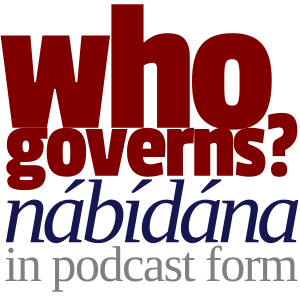
Live footage from the dissolution of An Oireachtas. Expect this type of paddywhackery.
In the first of our unrivalled* coverage of the Irish General Election 2016, we cover the system. You don’t get this kind of coverage in the Irish Times **
Whilst I’m no Tim Roll Pickering, I am a constantly bemused observer of Irish politics, and I have come to a number of facts, conclusions and conjectures. Before we begin, however, note the peculiarity of Ireland’s native language. Ireland is overwhelmingly an English speaking country, but the instruments and apparatus of the state are in Irish. Where it would be disrespectful or confusing to use the English phrase instead of the Irish, I will explain the phrase once, give an inexpert pronunciation guide and persevere with the Irish version. Where that would be confusing in and of itself, I shall use the English version. 800 years and all that.
Dissolution of Parliament
An Oireachtas (Eh-rock-tas) is the Irish parliament, and it is divided into two parts – ‘an Dáil Éireann‘ (Dawl Ehrin) which is elected by the people in a general election and ‘an Seanad Éireann‘ (Shannad Eh-rin) which is elected through a public speaking competition, a discussion between farmers and Dumbledore’s Sorting Hat (only the Trinity Panel).
The Parliament is dissolved by the President of Ireland, whose Irish title is ‘an Uachtarán‘ (Ooktarawn) is advised on the matter by ‘an Taoiseach‘ (Teeshuck), who is the Prime Minister.
In any case, as I write this apparently it’s about to be done. An Taoiseach is driven to Áras an Uachtaráin (Awrus an Ooktarawn), which, amusingly, is the old Viceregal Lodge in the enormous and gorgeous Phoenix Park. He (it has always been a he) meets an Uachtarán, I presume they have a cup of tea, and an Taoiseach advises an Uachtarán to dissolve an Oireachtas.
By decree, an Oireachtas is dissolved and Leinster House (wherein an Oireachtas is situated) becomes 100% more useful.
The election period
This election will be the shortest in the history of the state (which was arguably formed in 1921, or more philosophically, 1937). The election was called on Wednesday 3 February 2016 and polling will take place on Friday 26 February. Three weeks and two days, yet something tells me it’s going to drag by.
The method of election
Ireland elects an Dáil Éireann through a multi-member constituency proportional representation system called Single Transferable Vote. This system is dull to its core, except to people who geek out on these things. Here are the details such people find interesting.
Le geek, c’est chic! Geek out!
A voter ranks the candidates in order of their preference with a pen or pencil on the ballot paper, where a number 1 signifies their political BFF and a high number (or no number at all) signifies the sort of support a right-thinking person gives to this hallion.
The vote is cast.
The vote is counted. In the first instance, first preference votes are sorted. This gives a ‘first count’, and a ‘total valid poll’. Invalid votes include funny faces (LOL), rants (LMAO), marks which could personally identify the voter (ROFL) and political statements against water charges (LOLCANO).
Once you have your ‘total valid poll’, you can calculate your quota for each seat.
Each constituency has between 3 and 5 seats. The quota is based on a simple formula:
Quota = (Number of Valid Votes / (Number of seats + 1)) rounded up to two decimal places.
If there was a three seat constituency with 1000 votes cast, the quota for a seat would be (1000/4), so – 250.45 votes. Since votes tend to occur as whole numbers (duh), the quota is really 251 votes, no matter what a mathematician tells you.
Surpluses, or why people with clipboards should be avoided
BUT WAIT, THERE’S MORE. Say in that election, the candidate receives more votes than they need. In that case their surplus is redistributed, if the redistribution of that surplus could in theory result in another candidate also being elected.
This is what’s dull about PR-STV elections and it’s why people who support the system should be treated with deep suspicion. When sensible people would sooner have a fast count of a single seat first-past-the-post election and get to the pub, Irish political geeks like to stand around speculating about outcomes with tea.
More disturbingly, some of these people stand about with clip boards, claiming to know how the election will pan out – and they are, by and large, lying, and probably trying to woo academics or party activists. Treat these people with disdain. In an Irish election, nobody knows what’s going to happen other than a sometimes pretty accurate prediction of first preferences and pattern of redistribution.
Shrinking Dáil
An Dáil Éireann will be smaller than before, because people have emigrated. Where last time there were 166 members, there will now be 158 members. I advocated for a long time that this could have meant the election be unnecessary, and the make-up of the next Dáil simply be decided by Musical Chairs. This is why I am not a member of the Dáil.
What happens next?
When the votes are counted and people are deemed elected, eventually the Dáil will return and elect from their number a person to serve as an Taoiseach. That’s the theory. In reality, there will be political horse-trading between the parties and a coalition will be formed. We expect a number of independents to be elected this year (as last year) and for Sinn Féin to gain some seats, whilst it’s expected the Labour Party will struggle. The big issue will be whether Micheal Martin, leader of Fianna Fáil (Feeanna Fawl) has done enough to decontaminate his party. They’re expected to gain a few.
Fine Gael (Finna Gale) will probably be the largest party, but will more than likely lose a few and will not be able to form a majority on their own. Their coalition party last time was Labour – this arithmetic may not on its own provide for a majority and we could see another ‘Rainbow Coalition’ made up of multiple parties and independents. Truly, Ireland’s cup of woe runneth over.
What happens next next?
An Seanad Éireann will be elected in the month or so following the General Election. The upper house is a debating society for people with ideas and enough time to make tray-bakes, so don’t expect it to be too exciting.
- * piss poor
- ** Worthy, beautifully written, excellent but boring

